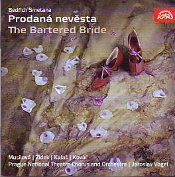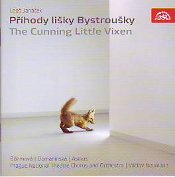Recently in Reviews
English Touring Opera are delighted to announce a season of lyric monodramas to tour nationally from October to December. The season features music for solo singer and piano by Argento, Britten, Tippett and Shostakovich with a bold and inventive approach to making opera during social distancing.
This tenth of ten Live from London concerts was in fact a recorded live performance from California. It was no less enjoyable for that, and it was also uplifting to learn that this wasn’t in fact the ‘last’ LfL event that we will be able to enjoy, courtesy of VOCES8 and their fellow vocal ensembles (more below …).
Ever since Wigmore Hall announced their superb series of autumn concerts, all streamed live and available free of charge, I’d been looking forward to this song recital by Ian Bostridge and Imogen Cooper.
The Sixteen continues its exploration of Henry Purcell’s Welcome Songs for Charles II. As with Robert King’s pioneering Purcell series begun over thirty years ago for Hyperion, Harry Christophers is recording two Welcome Songs per disc.
Although Stile Antico’s programme article for their Live from London recital introduced their selection from the many treasures of the English Renaissance in the context of the theological debates and upheavals of the Tudor and Elizabethan years, their performance was more evocative of private chamber music than of public liturgy.
In February this year, Albanian soprano Ermonela Jaho made a highly lauded debut recital at Wigmore Hall - a concert which both celebrated Opera Rara’s 50th anniversary and honoured the career of the Italian soprano Rosina Storchio (1872-1945), the star of verismo who created the title roles in Leoncavallo’s La bohème and Zazà, Mascagni’s Lodoletta and Puccini’s Madama Butterfly.
Evidently, face masks don’t stifle appreciative “Bravo!”s. And, reducing audience numbers doesn’t lower the volume of such acclamations. For, the audience at Wigmore Hall gave soprano Elizabeth Llewellyn and pianist Simon Lepper a greatly deserved warm reception and hearty response following this lunchtime recital of late-Romantic song.
Collapsology. Or, perhaps we should use the French word ‘Collapsologie’ because this is a transdisciplinary idea pretty much advocated by a series of French theorists - and apparently, mostly French theorists. It in essence focuses on the imminent collapse of modern society and all its layers - a series of escalating crises on a global scale: environmental, economic, geopolitical, governmental; the list is extensive.
For this week’s Live from London vocal recital we moved from the home of VOCES8, St Anne and St Agnes in the City of London, to Kings Place, where The Sixteen - who have been associate artists at the venue for some time - presented a programme of music and words bound together by the theme of ‘reflection’.
'Such is your divine Disposation that both you excellently understand, and royally entertaine the Exercise of Musicke.’
Amongst an avalanche of new Mahler recordings appearing at the moment (Das Lied von der Erde seems to be the most favoured, with three) this 1991 Mahler Second from the 2nd Kassel MahlerFest is one of the more interesting releases.
‘And there was war in heaven: Michael and his angels fought against the dragon; and the dragon fought and his angels, And prevailed not; neither was their place found any more in heaven … that old serpent … Satan, which deceiveth the whole world: he was cast out into the earth, and his angels were cast out with him.’
If there is one myth, it seems believed by some people today, that probably needs shattering it is that post-war recordings or performances of Wagner operas were always of exceptional quality. This 1949 Hamburg Tristan und Isolde is one of those recordings - though quite who is to blame for its many problems takes quite some unearthing.
There was never any doubt that the fifth of the twelve Met Stars Live in Concert broadcasts was going to be a palpably intense and vivid event, as well as a musically stunning and theatrically enervating experience.
‘Love’ was the theme for this Live from London performance by Apollo5. Given the complexity and diversity of that human emotion, and Apollo5’s reputation for versatility and diverse repertoire, ranging from Renaissance choral music to jazz, from contemporary classical works to popular song, it was no surprise that their programme spanned 500 years and several musical styles.
The Academy of St Martin in the Fields have titled their autumn series of eight concerts - which are taking place at 5pm and 7.30pm on two Saturdays each month at their home venue in Trafalgar Square, and being filmed for streaming the following Thursday - ‘re:connect’.
The London Symphony Orchestra opened their Autumn 2020 season with a homage to Oliver Knussen, who died at the age of 66 in July 2018. The programme traced a national musical lineage through the twentieth century, from Britten to Knussen, on to Mark-Anthony Turnage, and entwining the LSO and Rattle too.
With the Live from London digital vocal festival entering the second half of the series, the festival’s host, VOCES8, returned to their home at St Annes and St Agnes in the City of London to present a sequence of ‘Choral Dances’ - vocal music inspired by dance, embracing diverse genres from the Renaissance madrigal to swing jazz.
Just a few unison string wriggles from the opening of Mozart’s overture to Le nozze di Figaro are enough to make any opera-lover perch on the edge of their seat, in excited anticipation of the drama in music to come, so there could be no other curtain-raiser for this Gala Concert at the Royal Opera House, the latest instalment from ‘their House’ to ‘our houses’.
"Before the ending of the day, creator of all things, we pray that, with your accustomed mercy, you may watch over us."
Reviews

11 Oct 2009
Czech Opera Treasures on Supraphon
A note on the inside back cover of the booklets for these two releases announces that they are part of a new Supraphon series dedicated to “archive recordings of complete operas not yet available on CD.”
The set of The Bartered Bride comes from 1952; The Cunning Little Vixen was recorded in 1957. Many releases from those years offer fine sound, and in some cases (think the Mercury Living presence series), quite excellent audio — warm and yet detailed.
So the first thing to be said about these two sets must be that the recording quality ranges from poor (the Smetana) to just acceptable (the Janáček). The constricted mono sound of the 1952 Bride recording gives the impression of a microphone set up not in the same room as the musicians and singers, but possibly just around the corner. Aural claustrophobia sets in early and never really leaves, despite the thoroughly idiomatic performance. The Prague National Theater orchestra and chorus perform under the baton of Jaroslav Vogel, all sounding spirited enough to really make it all the more unfortunate that they can’t be heard better. The singers tend to be a little more up front in the mix, and though none come across as major talents, they all inhabit their roles naturally. Fans of this opera, which never seems to have caught on very well outside its home region, may want this set for its historic value. Others would probably do best to find the opera in German on EMI, with a first-rate chorus and clean, clear sound.
 The sound quality of the Vixen dismays the ears initially, but this is a case where one soon adjusts and settles into the mood of the performance, putting side the qualified audio experience. That excellent conductor Václav Neumann leads the same ensemble as in the Smetana, and here their virtuosity and knowledge of the idiom shine through. Rudolf Asmus sings a masculine, wise Forester, and Hana Böhmová employs a boyish soprano to vivid effect as the Vixen.
The sound quality of the Vixen dismays the ears initially, but this is a case where one soon adjusts and settles into the mood of the performance, putting side the qualified audio experience. That excellent conductor Václav Neumann leads the same ensemble as in the Smetana, and here their virtuosity and knowledge of the idiom shine through. Rudolf Asmus sings a masculine, wise Forester, and Hana Böhmová employs a boyish soprano to vivid effect as the Vixen.
In the slim-line cases of these lower-price editions, Supraphon provides a booklet with the usual credits and then a combination track listing and synopsis, in Czech and English. More information on the artists would be appreciated, though the lack of the usual essay retreading Wikipedia-style data on the composer and the opera prompts few regrets. The better-recorded Mackerras set of Janáček’s masterpiece remains essential, but this Supraphon edition deserves a listen as well.
Chris Mullins

